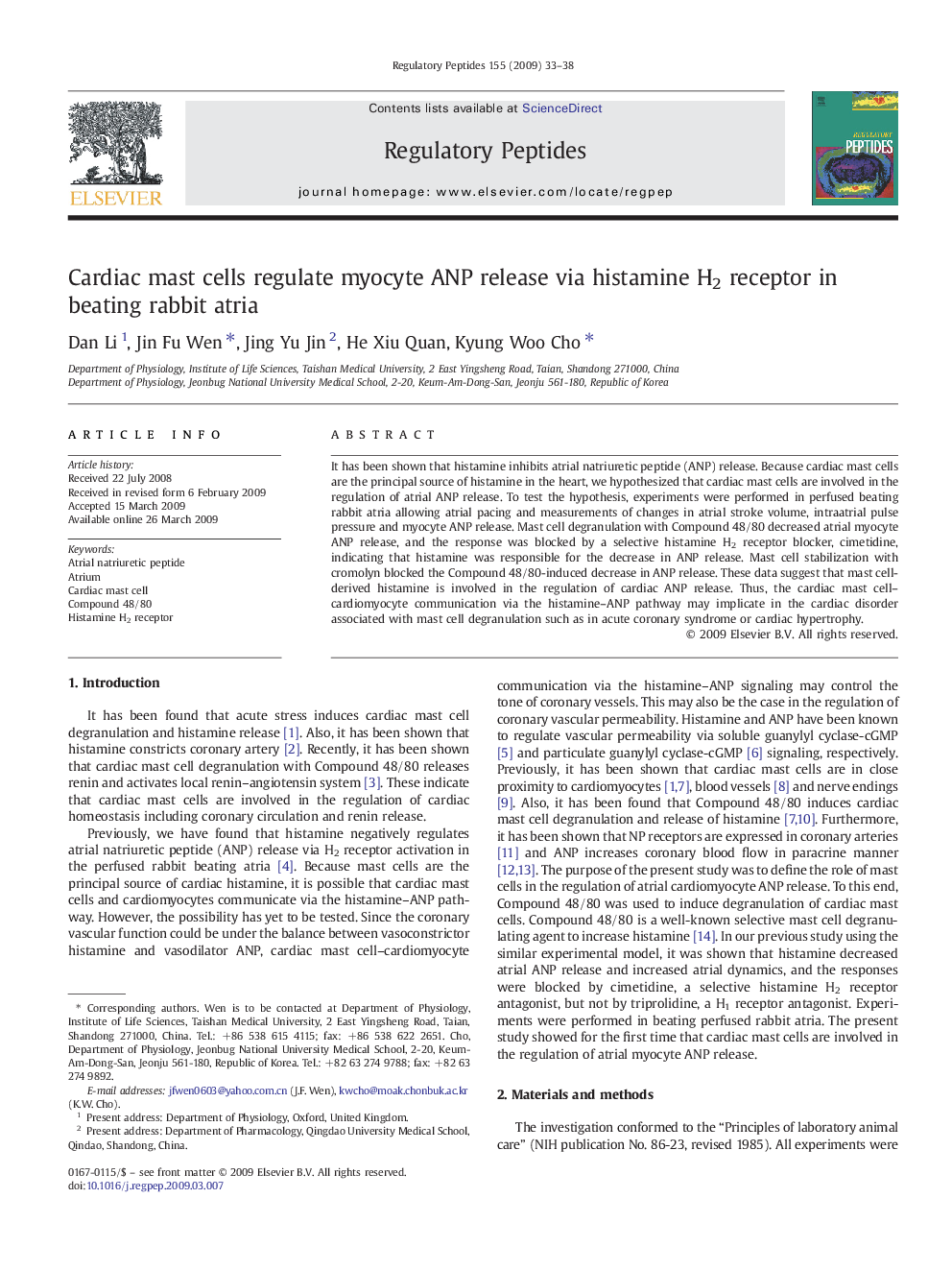| Article ID | Journal | Published Year | Pages | File Type |
|---|---|---|---|---|
| 2023087 | Regulatory Peptides | 2009 | 6 Pages |
It has been shown that histamine inhibits atrial natriuretic peptide (ANP) release. Because cardiac mast cells are the principal source of histamine in the heart, we hypothesized that cardiac mast cells are involved in the regulation of atrial ANP release. To test the hypothesis, experiments were performed in perfused beating rabbit atria allowing atrial pacing and measurements of changes in atrial stroke volume, intraatrial pulse pressure and myocyte ANP release. Mast cell degranulation with Compound 48/80 decreased atrial myocyte ANP release, and the response was blocked by a selective histamine H2 receptor blocker, cimetidine, indicating that histamine was responsible for the decrease in ANP release. Mast cell stabilization with cromolyn blocked the Compound 48/80-induced decrease in ANP release. These data suggest that mast cell-derived histamine is involved in the regulation of cardiac ANP release. Thus, the cardiac mast cell–cardiomyocyte communication via the histamine–ANP pathway may implicate in the cardiac disorder associated with mast cell degranulation such as in acute coronary syndrome or cardiac hypertrophy.
